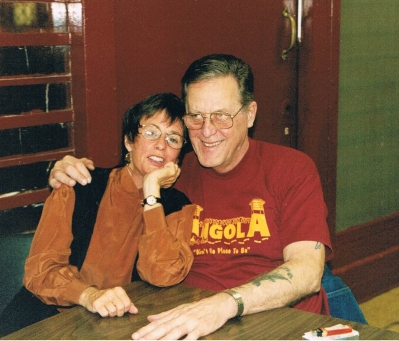
This week, March 20-27, An Unremembered Grave, is part of a cool promo in which participants can win over 45 FREE supernatural thrillers and mysteries and even a Kindle Fire. I may even enter it myself. I mean, 45 free books? Even if I don’t like half of them, that’s still maybe 20 that I will. Hard to resist.
But promoting the book is also a chance to tell the story behind its existence. The story authors generally bury in misleading remarks and then take to the grave. But the last person who could be hurt by the story died a few days ago, so now I’m free to tell it.
AUG is about a vampire named Grimaud whom at least one of my friends regards as profoundly sexy, although that wasn’t quite my point in writing him. My point was to explore the very existence of the vampire figure in history. Vampires are a trope, but for what? Could drinking blood serve any possible purpose? I’ve been fascinated by vampires since I was a kid, and writing Grimaud was intense fun. But the vampire isn’t the untold story.
AUG is set in a Louisiana village and a Louisiana prison I visited countless times over a period of twenty years. It’s about a fictional innocent man called “Monk” who’s locked in that prison, and about a fictional visiting historian named Danni whose life will be changed by both vampire and prisoner. The real-life village is St. Francisville, the real-life prison is Angola and the real-life prisoner was a guy named Douglas Dennis.

Doug
Doug (who wasn’t innocent) was my confidante and best-buddy for twenty years, the brother I never had, an intellectual sparring partner who won every debate and about the only person I’ve ever met who embodied the classical concept, “nobility.” His IQ was off the charts and during his ten-year “escape” (which wasn’t really an escape – highly-placed people arranged the whole thing for him), as “Walter Stevens,” he rocked his California Mensa Club, managed a small, international business and volunteered as a park ranger on weekends.
But after a decade of freedom without so much as a parking ticket, he accidentally lost his fake “Walter Stevens” passport. Somebody found it and turned it in, triggering red flags, since the real Walter Stevens and his social security number were, of course, long dead. Within hours FBI Agents were at Doug’s door, but by then he was on the lam. A few miserable months later (he hated running) he was captured in Houston, eerily on Fannin Street on the sidewalk smack in front of the Unitarian church where I hung out on occasion when I lived in Houston. Someday I’ll go back there and lay flowers on that sidewalk where he laid down a gun he’d promised himself not to use, and lost his freedom forever.
Doug would spend the rest of his life in prison, and I would meet him through strange circumstances only a few years after his recapture. Wild stories swarmed around his ten-year escape, which began with some time in Guatemala, or Venezuela, someplace in South America? Nobody really knew. He was supposedly a master international criminal, a spy released from prison by the government because of his super-intelligence, to conduct covert espionage ops, or a gun-runner for South American crime cartels or for the CIA. When I asked him, he said the stories were all “bullshit.” But he was uncharacteristically cagey about that period of time, and when he asked me to write his biography I said okay, but only if I had the whole story.

Doug and I hamming it up at one of many Angola dinners. Fried catfish to die for!
Doug was 73 and very ill after heart bypass surgery in a New Orleans charity hospital right after Katrina, during which the surgeon accidentally left a sponge in his chest, causing a ghastly infection from which he never recovered. We set a date – June 17, 2009 – for a long visit during which he’d fill in the missing section of his story. I had my plane tickets, but all of us, Doug’s many friends on the outside, were now gravely concerned about the behavior of another prisoner, Kerry Myers, who for reasons known only to him was orchestrating a series of juvenile harassments against Doug. Myers and a friend had in 1984 beaten Myers’ wife to death with a baseball bat and severely injured Myers’ young son. Prisons reify the worst of innate male behaviors, and it may be that for a sadistic personality the opportunity to torture a dying man in a wheelchair was irresistible. But frail or not, Doug’s capacity for outrage was undiminished. Every stupid, insulting trick Myers arranged (through others – he was too cowardly to confront Doug himself) drove Doug’s blood pressure higher and higher. Which was the point.
Until at 9:30 PST on May 5, 2009, Doug called, in intense pain and barely able to speak. It was the last time. At 6:30 the following morning his friend, another prisoner, Ben Daughtery, called from Doug’s number as had been arranged. “He’s dead,” was all Ben could say through tears.
And that’s the reason for An Unremembered Grave. As a child abuse investigator I couldn’t smash furniture across the faces of the child molesters I had to interview, but in all the Bo Bradley books I could destroy them in delicious, elaborate and agonizing ways. Kerry Myers is, for reasons that are unfathomable, out of prison, freed months ago. But his avatar, “Hoyt Planchard,” will suffer forever the degrading fate he deserves, in the pages of a novel about a vampire and a southern prison.
 With the retired FBI Agent who tracked Doug and then became his lifelong friend, I’m writing Doug’s story. We can’t fill in that mysterious time during the early years of his “escape,” but until days ago there was one person who could. Her name was Dojo, the woman with whom Doug lived for six years in northern CA as Walter Stevens. Dojo never knew Doug’s real identity or history until representatives of the state department showed up to terrify her with threats of imprisonment if she didn’t talk. But she couldn’t. At least not about somebody named Douglas Dennis, whom she’d never met!
With the retired FBI Agent who tracked Doug and then became his lifelong friend, I’m writing Doug’s story. We can’t fill in that mysterious time during the early years of his “escape,” but until days ago there was one person who could. Her name was Dojo, the woman with whom Doug lived for six years in northern CA as Walter Stevens. Dojo never knew Doug’s real identity or history until representatives of the state department showed up to terrify her with threats of imprisonment if she didn’t talk. But she couldn’t. At least not about somebody named Douglas Dennis, whom she’d never met!
But she could talk to us, now, about those missing years. She was there, in Guatemala or wherever it was. That’s where she and Doug met. He told me that part of the story, the “safe” part. I tracked Dojo down to tell her of Doug’s death in 2009. She said he’d been her “soul mate” and sent flowers to the memorial service I organized at the prison just so Ben Daughtery could be there even though everybody else wanted to have it on the outside. Preferably someplace with a bar.
Doug and Dojo had maintained a sporadic, secret correspondence over the years since he

A secret letter?
was recaptured, and she knew who I was, knew I was his friend. But when Joe, the FBI Agent, and I asked to interview her about those missing years, she flatly refused. I explained and implored through carefully-worded calls and emails. Joe wrote thoughtful apologies for her treatment at the hands of law enforcement all those years ago, and assured her that she was in no current legal peril. Doug was dead, the case closed, she could talk to us.
But she wouldn’t, said she was terminally ill and asked to be left alone. That was nearly two years ago, and I kept thinking she’d change her mind and call me, finally fill in that last empty space in Doug’s story. I could have, but didn’t, fly there, barge in and insist that she talk. (Like me, Dojo was a dachshund fanatic; surely that shared enthusiasm might have overcome her silence?) But I knew Doug wanted her to be protected from whatever pain still pinged from his long-ago and necessary deception. (Necessary because if she’d known who he was she would have gone to prison for harboring an escaped criminal when his cover was blown.) So, no unethical use of dachshunds.
But I knew Doug wanted her to be protected from whatever pain still pinged from his long-ago and necessary deception. (Necessary because if she’d known who he was she would have gone to prison for harboring an escaped criminal when his cover was blown.) So, no unethical use of dachshunds.
Then a few days ago I saw her sister’s post on Facebook, saying Dojo had died.
Dojo didn’t know about Doug’s last months made unbearable by Kerry Myers, and was spared the reality of his death at Myers’ hands. A murder by stupid, cruel increments.
Joe and I will eventually finish a book that will tell the strange and oddly inspiring tale of Doug’s life, but that piece about the first escape years? That chapter will just be a question mark. Maybe he really was running covert ops for the government? 😉
We’ll never know.
Read Full Post »












 Jude’s character and becomes a subplot near the end of the tale. And the symbolic icon for that plot thread is the parting gift Luke sent to Jude so long ago – one of those music boxes with a little figurine of a dancer! (Except he’s replaced the dancer with a carved woodpecker, but, and this is so weak, there arguably was a dancer in this book somewhere.)
Jude’s character and becomes a subplot near the end of the tale. And the symbolic icon for that plot thread is the parting gift Luke sent to Jude so long ago – one of those music boxes with a little figurine of a dancer! (Except he’s replaced the dancer with a carved woodpecker, but, and this is so weak, there arguably was a dancer in this book somewhere.) Still at lunch and grabbing for straws by this point, I intrusively ask Micki if by any chance she has a heartbreaking lost soulmate story she’d like me to share with the entire world. “Not yet,” she says enigmatically, meaning, I assume, that despite three husbands the soulmate has yet to be lost.
Still at lunch and grabbing for straws by this point, I intrusively ask Micki if by any chance she has a heartbreaking lost soulmate story she’d like me to share with the entire world. “Not yet,” she says enigmatically, meaning, I assume, that despite three husbands the soulmate has yet to be lost.


 With the retired FBI Agent who tracked Doug and then became his lifelong friend, I’m writing Doug’s story. We can’t fill in that mysterious time during the early years of his “escape,” but until days ago there was one person who could. Her name was Dojo, the woman with whom Doug lived for six years in northern CA as Walter Stevens. Dojo never knew Doug’s real identity or history until representatives of the state department showed up to terrify her with threats of imprisonment if she didn’t talk. But she couldn’t. At least not about somebody named Douglas Dennis, whom she’d never met!
With the retired FBI Agent who tracked Doug and then became his lifelong friend, I’m writing Doug’s story. We can’t fill in that mysterious time during the early years of his “escape,” but until days ago there was one person who could. Her name was Dojo, the woman with whom Doug lived for six years in northern CA as Walter Stevens. Dojo never knew Doug’s real identity or history until representatives of the state department showed up to terrify her with threats of imprisonment if she didn’t talk. But she couldn’t. At least not about somebody named Douglas Dennis, whom she’d never met!
 But I knew Doug wanted her to be protected from whatever pain still pinged from his long-ago and necessary deception. (Necessary because if she’d known who he was she would have gone to prison for harboring an escaped criminal when his cover was blown.) So, no unethical use of dachshunds.
But I knew Doug wanted her to be protected from whatever pain still pinged from his long-ago and necessary deception. (Necessary because if she’d known who he was she would have gone to prison for harboring an escaped criminal when his cover was blown.) So, no unethical use of dachshunds. The highest office in the United States may soon be so defiled by the presumptive presence of a vicious, sleazy conman that the office will no longer exist. Donald Trump will never be President of the United States because his presence obliterates all meaning inherent in the office. But he will, if not stopped, utterly destroy the United States.
The highest office in the United States may soon be so defiled by the presumptive presence of a vicious, sleazy conman that the office will no longer exist. Donald Trump will never be President of the United States because his presence obliterates all meaning inherent in the office. But he will, if not stopped, utterly destroy the United States. But apparently some percentage of (white) women also hate women, at least insofar as they were willing to sacrifice all integrity in the interest of imagined personal financial gain or protection from Islamic terrorists. (Terrorists from other religions are okay.) That any woman cast her vote for a pathetic, predatory, narcissistic joke of a man, is insane.
But apparently some percentage of (white) women also hate women, at least insofar as they were willing to sacrifice all integrity in the interest of imagined personal financial gain or protection from Islamic terrorists. (Terrorists from other religions are okay.) That any woman cast her vote for a pathetic, predatory, narcissistic joke of a man, is insane.










